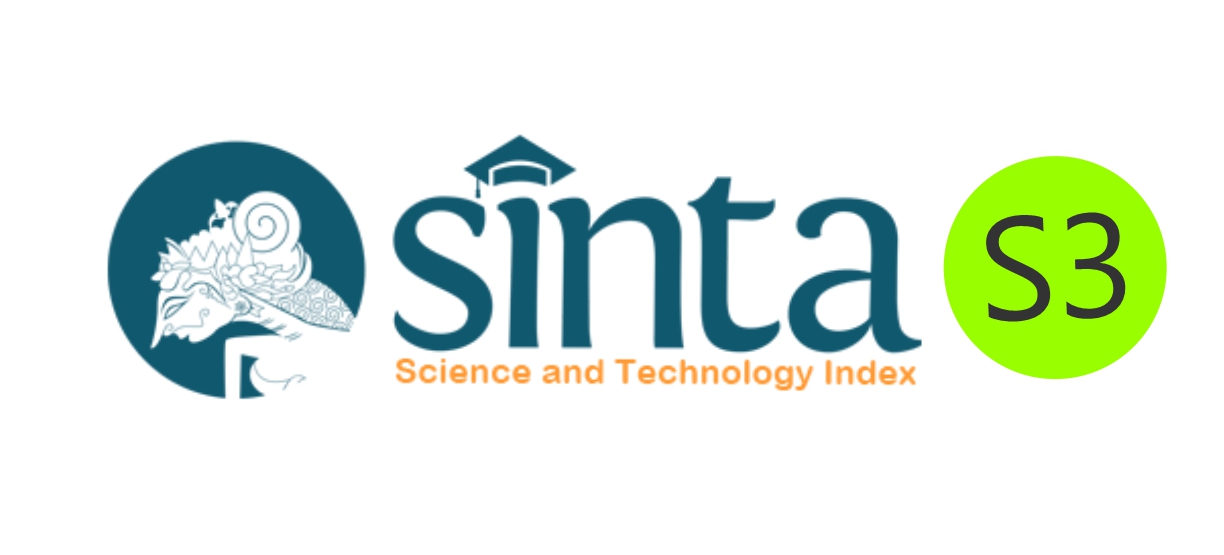Perlindungan Hukum bagi Direksi atas Tagihan Pajak yang Masih Terutang Pasca Pemberesan Harta Pailit
Downloads
Abstract
The provisions of Article 2 paragraph (6) and Article 32 paragraph (2) of Law Number 6 of 1983 concerning General Provisions and Tax Procedures as last amended by Government Regulation in Lieu of Law Number 2 of 2022 concerning Job Creation (UU KUP) resulted in the Directors of a Limited Liability Company having been terminated bankruptcy can be held personally responsible for tax debt bills that are still outstanding after the settlement of bankruptcy assets. As with the principle of the Business Judgement Rule, directors who run a company with the principles of Good Corporate Governance will avoid being held personally liable when a Limited Liability Company is declared bankrupt. However, the Directorate General of Taxes continues to submit tax debt claims to the directors personally because the bankruptcy assets of the Limited Liability Company are not sufficient to pay off the tax debt. Meanwhile, the tax debt continues to arise because the NPWP of the Limited Liability Company after the settlement is still active. The NPWP which is still active causes the dissolution of a Limited Liability Company that is no longer in operation to be invalid because there is an accrued tax debt that must be paid. This research is normative legal research using statutory, conceptual, and case approaches. This research is expected to provide answers to legal protection and certainty for directors and for Limited Liability Companies which will be dissolved after the process of settling bankruptcy assets is completed by the curator.
Keywords: Bankruptcy; Tax Debt; Business Judgement Rule.
Abstrak
Ketentuan Pasal 2 ayat (6) dan Pasal 32 ayat (2) Undang-Undang Nomor 6 Tahun 1983 tentang Ketentuan Umum dan Tata Cara Perpajakan sebagaimana diubah terakhir dengan Peraturan Pemerintah Pengganti Undang-Undang Nomor 2 Tahun 2022 tentang Cipta Kerja (UU KUP) mengakibatkan Direksi Perseroan Terbatas yang telah diputus pailit dapat diminta pertanggungjawaban secara pribadi atas tagihan utang pajak yang masih terutang pasca pemberesan harta pailit. Sebagaimana prinsip Business Judgement Rule maka direksi yang menjalankan perusahaan dengan kaidah Good Corporate Governance akan terhindar dari pertanggungjawaban secara pribadi ketika Perseroan Terbatas diputus pailit. Akan tetapi Direktorat Jenderal Pajak tetap mengajukan tagihan utang pajak ke pribadi direksi karena harta pailit dari Perseroan Terbatas tidak cukup untuk melunasi utang pajak. Sementara itu, utang pajak tetap timbul karena NPWP Perseroan Terbatas pasca dilakukan pemberesan masih dalam keadaan aktif. NPWP yang masih aktif tersebut mengakibatkan pembubaran Perseroan Terbatas yang sudah tidak beroperasi menjadi tidak dapat dilakukan karena terdapat utang pajak yang masih harus dibayar. Penelitian ini merupakan penelitian hukum normatif dengan menggunakan pendekatan perundang-undangan, konseptual, dan kasus. Penelitian ini diharapkan dapat memberikan jawaban atas perlindungan dan kepastian hukum bagi direksi dan bagi Perseroan Terbatas yang akan dibubarkan setelah proses pemberesan harta pailit selesai dilakukan oleh kurator.
Kata Kunci: Pailit; Utang Pajak; Business Judgement Rule.
Buku
H.M.N. Purwosutjipto, Pengertian Pokok Hukum Dagang Indonesia, Dikutip Dari Ridwan Khairandy, Perseroan Terbatas Doktrin, Peraturan Peraturan PerundangUndangan, Dan Yurisprudensi Edisi Revisi (Total Media 2009).
Hadi Subhan, Hukum Kepailitan : Prinsip, Norma, Dan Praktik Di Peradilan (Sinar Grafika 2009).
Lon L. Fuller, The Morality of Law Revised Edition (Yale University Press 1963).
Peter Mahmud Marzuki, Penelitian Hukum (Edisi Revisi) (Revisi, Kencana Prenada Media 2017).
Ronny Hanitijo Soemitro, Metodologi Penelitian Hukum Dan Jurimetri (Ghalia Indonesia 1998).
Jurnal
Arsht S, ‘The Business Judgment Rule Revisited' (1979) 8 Hofstra Law Review.
Bainbridge S, ‘The Business Judgment Rule as Abstention Doctrine' (2004) 57 Vanderbilt Law Review.
Craig L. Carr, ‘The Concept of Formal Justice' (1981) 39 Journal for Philosophy in the Analytic Tradition 211.
David Lovis-McMahon, ‘Substantive Justice How the Substantive Law Shapes Perceived Fairness' (2010).
Kartoningrat R and others, ‘Prinsip Independensi Dan Pertanggung Jawaban Kurator Dalam Pengurusan Kepailitan' (2021) 16 Rechtidee 37.
McMillan L, ‘The Business Judgment Rule as an Immunity Doctrine' (2013) 4 William & Mary Business Law Review.
Shubhan MH, Dalam JD and Surabaya S, ‘The Utilization Of Unwritten Laws In Bankruptcy Disputes' (2019) 8 Jurnal Rechts Vinding: Media Pembinaan Hukum Nasional 85.
Laman
‘Hak Mendahulu Dalam Pelunasan Utang Pajak Untuk Wajib Pajak Dinyatakan Pailit' (Hukum Online.com, 2020) <https://www.hukumonline.com/berita/a/hak-mendahulu-dalam-pelunasan-utang-pajak-untuk-wajib-pajak-dinyatakan-pailit-lt5f854600746fd/#:~:text=Bacaan 3 Menit-,Hak mendahulu dalam pelunasan utang pajak untuk wajib pajak dinyatakan,untuk melunasi utang-utang tersebut>.
Hamalatul Qurani, ‘Hapusnya Utang Pajak' (Hukumonline) 2 <https://www.hukumonline.com/berita/a/hapusnya-utang-pajak-lt62bfe4438c410/?page=2>.
Perundang-undangan
Undang-Undang Dasar Negara Republik Indonesia Tahun 1945.
Undang-Undang Nomor 19 tahun 2000 tentang Perubahan atas Undang-Undang Nomor 19 Tahun 1997 tentang Penagihan Pajak dengan Surat Paksa, Lembaran Negara Republik Indonesia Tahun 2000 Nomor 129, Tambahan Lembaran Negara Republik Indonesia Nomor 3987.
Undang-Undang Nomor 37 Tahun 2004 tentang Kepailitan dan Penundaan Kewajiban Pembayaran Utang, Lembaran Negara Republik Indonesia Tahun 2004 Nomor 131, Tambahan Lembaran Negara Republik Indonesia Nomor 4443.
Undang-Undang Nomor 28 tahun 2007 tentang Perubahan Ketiga Atas Undangundang Nomor 6 Tahun 1983 tentang Ketentuan Umum dan Tata Cara Perpajakan, Lembaran Negara Republik Indonesia Tahun 2007 Nomor 85, Tambahan Lembaran Negara Republik Indonesia Nomor 4740.
Undang-Undang Nomor 40 tahun 2007 tentang Perseroan Terbatas, Lembaran Negara Republik Indonesia Tahun 2007 Nomor 106, Tambahan Lembaran Negara Republik Indonesia Nomor 4756.
Peraturan Menteri Keuangan Nomor 68/PMK.03/2012 tentang Tata Cara Penghapusan Piutang Pajak dan Penetapan Besarnya Penghapusan.
Peraturan Menteri Keuangan Nomor 147/PMK.03/2017 tentang Tata Cara Pendaftaran Wajib Pajak dan Penghapusan Nomor Pokok Wajib Pajak Serta Pengukuhan dan Pencabutan Pengukuhan Pengusaha Kena Pajak.
Peraturan Menteri Keuangan Nomor 189/PMK.03/2020 tentang Tata Cara Pelaksanaan Penagihan Pajak atas Jumlah Pajak yang Masih Harus Dibayar
Putusan
Putusan Mahkamah Konstitusi Nomor 41/PUU-XVIII/2020 tentang Penghapusan Nomor Pokok Wajib Pajak Tidak Menghilangkan Kewajiban Pembayaran Pajak Oleh Wajib Pajak.
Pasal 1 ayat (4) UU PT.
Pasal 104 ayat (2) dan ayat (3) UU PT.
Pasal 15 ayat (1) UU KPKPU.
Pasal 2 ayat (6) UU KUP.
Pasal 2 PMK No. 68 Tahun 2012.
Pasal 202 ayat (1) UU KPKPU.
Pasal 26 ayat (1) UU KPKPU.
Pasal 4 PMK No. 68 Tahun 2012.
Pasal 69 ayat (1) UU KPKPU.
Pasal 97 ayat (3) dan ayat (4) UU PT.
Pasal 97 ayat (3) UU PT.
Pasal 97 ayat (5) UU PT
Copyright (c) 2023 Ketut Octania Fineta Diarsa, Etik Yuniati, Surahmat, Tofani Yurisar Akbar

This work is licensed under a Creative Commons Attribution 4.0 International License.


















